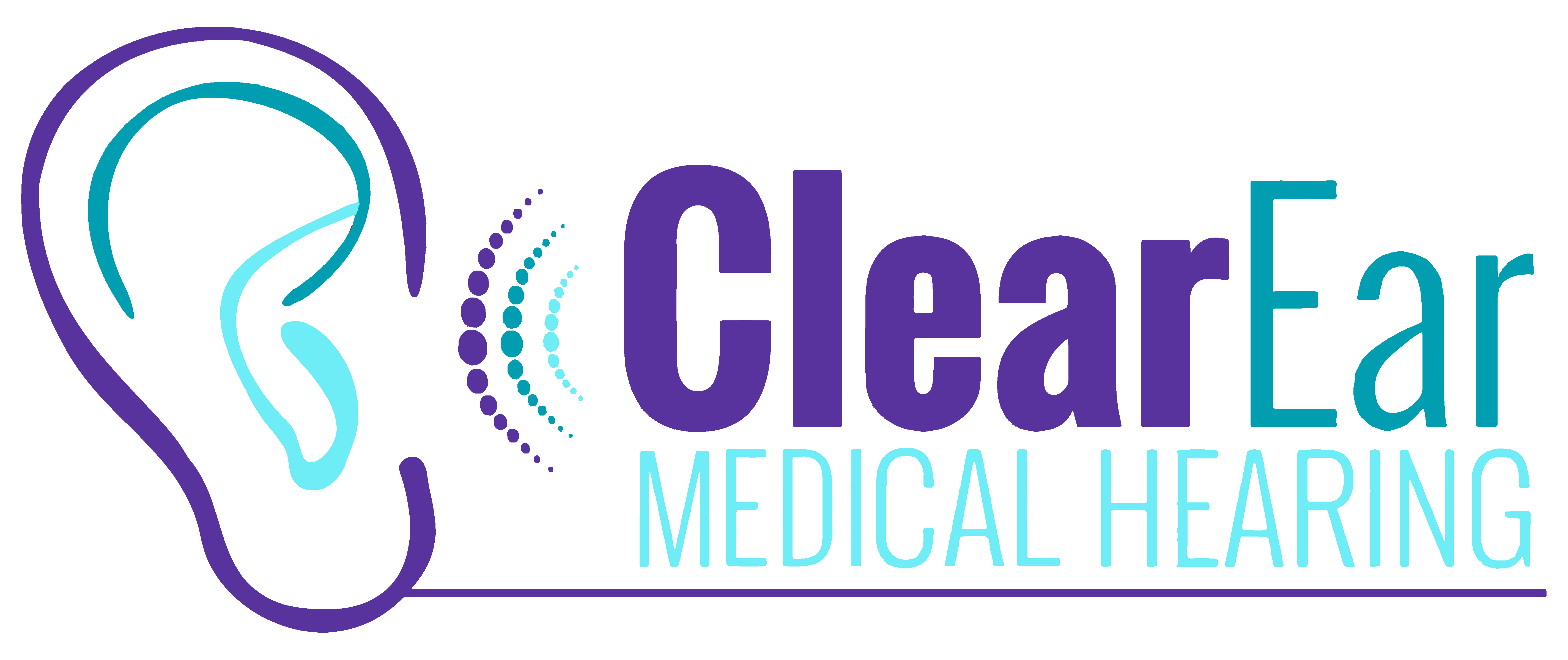“We Listen, so you can hear!”
Don’t Wait…
When hearing loss is suspected, you should make an appointment for a hearing evaluation. This series of tests will help determine the extent of hearing loss, and is instrumental in helping your hearing professional come up with a solution for treating your impairment.
Remember, the sooner hearing loss is identified, the better your chances of successfully treating it. Early detection gives you more options for treatment.
“We Listen, so you can hear!”
Don’t Wait…
When hearing loss is suspected, you should make an appointment for a hearing evaluation. This series of tests will help determine the extent of hearing loss, and is instrumental in helping your hearing professional come up with a solution for treating your impairment.
Remember, the sooner hearing loss is identified, the better your chances of successfully treating it. Early detection gives you more options for treatment.
Hearing Aid Services at Clear Ear
Clear Ear provides free hearing consultations for new patients interested in our various hearing services. A hearing consultation with our hearing professional is your vital first step in your journey to better hearing.
Typically our new patients want to know:
- Are there solutions for my hearing problems?
- Is my problem just earwax?
- Do I have a hearing loss that can be treated with hearing aids?
- What brand, style and technology level is the best for me?
- If I get hearing aids can others see them?
- How much will it cost to treat my hearing loss?
- If I get hearing aids can others see them?
- What is the process towards better hearing?
We believe that the first step to improving your hearing is listening to you. We listen, so you can hear!
Call us at 904-247-4327 or make your hearing consultation appointment now!
Comprehensive Hearing Tests and Hearing Examinations
One of our most important hearing services that we offer are hearing examinations and hearing tests. A comprehensive hearing evaluation along with a complete hearing test for hearing loss will help us answer several questions:
- Is hearing loss present?
- How severe is the hearing loss?
- What is the type of hearing loss?
- Is the hearing loss medically treatable?
What to Expect?
A complete history will help us determine how much your hearing loss is impacting your day-to-day life. We will discuss with you and your loved one what concerns are present surrounding your hearing loss. Is the television too loud for everyone else? Does everyone mumble? Is it difficult to hear when background noise is present? At this time, we also take a look at any family history of hearing loss or any previous noise exposure. Finally, we review your lifestyle and what kinds of listening situations are a concern for you such as church, group settings, restaurants, meetings, etc.
The specialist uses a variety of hearing tests to evaluate your hearing. The process is painless, comfortable and safe. It may include:
- Air Conduction testing
- Bone conduction testing
- Speech testing to include word recognition
- Speech in noise testing
- Tympanometry and/or acoustic reflex testing
During your hearing aid evaluation, the hearing test will be explained in detail. We will discuss why you might be experiencing difficulty in certain situations. We will also discuss effective communication strategies to help when hearing is difficult. The hearing test, along with lifestyle and budget considerations will help us determine your best hearing solution.
Hearing Aid Evaluation and Demonstration
During the hearing aid evaluation, you will have a hearing aid demonstration. This allows you to experience first-hand how hearing aids sound and feel. This can be quite an experience for some who have not realized the impact of their hearing loss. A hearing aid demonstration allows a hearing loss patient to try on a pair of hearing aids in the office. You can experience the sound and see on the computer screen how you hear with and without them.
If a hearing loss is identified and hearing aids are recommended based on the hearing testing, we will discuss with you how your hearing problem impacts your day-to-day life and the lives of your family, and if you are experiencing any other symptoms, such as ringing in the ears (tinnitus) or dizziness (vertigo). We will discuss whether one or two hearing aids are recommended and how you will benefit from amplification.
We will answer your questions and help you select the hearing aid style, features, and level of technology best suited to you. The final decision is yours regarding which hearing aid(s) to purchase. Dependent on the style of hearing aid selected, if custom earmolds are required, the earmold impressions will be taken. An appointment will be scheduled for the fitting, at which time the 30 day trial period will begin.
Hearing Aid Fittings
Once you have completed your hearing aid evaluation and worked with our specialist on selecting the hearing aids most appropriate for your hearing needs, you will be scheduled for a hearing aid fitting. Before this appointment, our specialist will program the hearing aids with a specific prescription, based upon your hearing test and all the information gathered about your communication needs.
Once programmed, our specialist will explain how to insert and remove the hearing aids and batteries along with very basic cleaning instructions. We will try not to overwhelm you with too much information at this visit. It is recommended that you bring a close friend or family member along to this appointment to help you remember all of the information you will be given during this time.
Hearing Aid Repairs
We repair hearing aids. Hearing aids have small working parts, and at some point you will likely need a hearing aid repair. Earwax and moisture are two of the most common problems that cause a hearing aid to stop working. Even with good care and regular maintenance, a hearing aid can still require a repair. Our hearing professional will assess your hearing aid and determine if a hearing aid repair can occur in the office, or if it needs to be sent in to the manufacturer. In some cases it may just need to be reprogrammed.
We are able to clean, check and repair most hearing aids. Even if the hearing aid was not purchased in our office, in most cases, we will find a repair solution that suits your needs. Make an appointment with us and bring your broken hearing aid in for one of our staff to evaluate and determine what type of repair is necessary. Contact our office at (904) 247-4327 for more information or make an appointment now.
Hearing Aid Cleanings and Hearing Aid Care & Maintenance
Your ear canal produces earwax which helps to lubricate the ear canal and prevent excessive dryness. Earwax also helps to protect your sensitive eardrum by trapping dirt and foreign substances. Earwax buildup and body oils are some of the main causes for hearing aid repairs. Earwax clogs up the sound outlet and/or the ventilation opening, resulting in weak, distorted sound or absence of sound. Moisture given off by your body will also negatively affect your hearing aids over the lifespan of the devices. The goal is to minimize moisture and earwax buildup on a consistent basis when caring for and maintaining your hearing devices.
When you are fit with your new hearing aids, we will provide you specific instructions for cleaning and maintaining your new devices. It is important that you follow our hearing aid care and maintenance instructions so that moisture and wax buildup are minimized therefore helping ensure the longevity or your new hearing aids. We will also instruct you on any precautions you should take when handling and cleaning your hearing aids.
Additionally, during your scheduled visits, we will thoroughly clean, service, and replace appropriate parts on your hearing aids. If at any time you are not comfortable when cleaning your own hearing aids, stop by and we will be happy to do it for you.
How to Care, Clean, and Maintain your hearing aids…
This video provides tips on caring for, cleaning and maintaining your hearing aids.
This video was created by the University of Minnesota – Twin Cities chapter of Student Academy of Audiology with the intent to be used for educational purposes.
If you have any questions concerning the cleaning, care and maintenance of your hearing aids
please call Clear Ear at (904) 247-4327 or make an appointment.
Hearing Aid Adjustments, Hearing Aid Programming and Hearing Aid Settings
Clear Ear provides precise hearing aid adjustments and hearing aid programming to ensure your hearing aid settings match your hearing loss.
After receiving your hearing aids, our specialist will set the devices to best fit your hearing needs and teach you how to properly care for them. To receive the most benefit from your hearing aids, you need to have them adjusted, or programmed, to your specific needs or changes as they occur. After a few weeks or months, you may notice signs that your hearing aids need some fine tuning.
When to Have Your Hearing Aids Adjusted…
Clear Ear will schedule hearing aid cleaning and check-up appointments for you bi-annually. However, you should contact us for an appointment if you have gone an extended period of time without professional hearing aid adjustments or are noticing things such as:
- Pain or discomfort in or around your ear
- Whistling-like sounds in your ear (feedback)
- Frequently turning the volume up on your hearing aids
- An environmental change that requires a new program.
Supplies & Batteries
We offer a stellar assortment of products to meet your specific needs, including hearing aid batteries from top manufacturers like Renata, PowerOne and Rayovac and powerful hearing aid cleaners to keep your valuable investment as sanitary as possible. Our hearing aid clips are designed to reliably secure your hearing aid, while our hearing aid dryers, vacuums, and other moisture protection products efficiently eliminate and prevent moisture and cerumen (wax) buildup to extend the life of your device. Not all hearing aids require batteries, we now have many rechargeable options.
Your hearing aids require a steady power supply in order to work properly, because even subtle changes in power output can affect performance, clarity, and volume control. Different hearing aids require different types of batteries — based on the size and power requirements of the hearing aid — to work properly. There are many variables that determine how long your battery will power your hearing aids.
A standard “zinc-air” battery lasts anywhere from three to 22 days, depending upon the type of hearing aid, the capacity of the battery, and the amount of hearing aid use throughout each day. The smallest hearing aid batteries, used for 12 to 16 hours per day, may need to be changed every three or four days, while the largest hearing aid batteries used for only a couple hours each day may go several weeks without needing to be changed.
To minimize battery drain, turn off the hearing aid when it’s not in use. Opening the battery door is also an option, and a good way to dry out accumulated moisture. But if the hearing aids won’t be used for an extended period of time (overnight, for instance), removing the battery entirely is the best method.
When storing batteries, keep them at normal room temperature (not refrigerated). Prior to changing batteries, wash your hands thoroughly to remove grease and dirt, which may drain the battery more quickly or dirty the inside of your hearing aid. When the battery dies, it should be removed immediately. A completely discharged battery may swell and become difficult to remove from the small device.
We will show you exactly how to change your hearing aid batteries.
Your Hearing Health Starts Here
Flexible appointments
Or call — 904-247-4327
Better Hearing Care is Our Mission
Same Day Appointments are Available.

